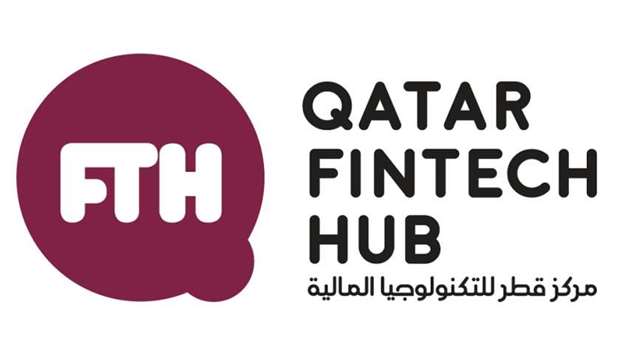The Qatar Fintech Hub (QFTH) will run the 'virtual pitch' days next week for its first wave of Incubator and Accelerator Programmes (IAP), through which up to 30 start-up and mature fintechs will be selected for its rigorous 12-week course starting on September 13.
“The virtual pitch days will run from August 16 to 19 and selected fintechs will be announced on the last week of August," said QFTH, co-founded by Qatar Development Bank (QDB), in a tweet.
The applications for the Wave 1 of IAP have been closed and QFTH — which brings together talented entrepreneurs, investors and enablers to develop disruptive technologies — is now evaluating the applications received from the fintechs.
In view of Covid-19, the first wave of the incubator (focused on early-stage startups) and accelerator (mature fintechs) programmes will be conducted virtually. Up to 30 fintechs (10-15 per programme) will be selected for the programmes.
QFTH received applications from entities that are looking for a launch-pad in the Middle East to accelerate their growth.
The first wave of the IAP would be centered on payments in alignment with the Qatar Fintech strategy, and in synergy with the Qatar Central Bank-Sandbox and upcoming regulations.
Nevertheless, QFTH had said it is open to include fintechs specialising in Islamic finance, regulatory framework and small and medium enterprises (SMEs).
Each participating fintech will receive financial support of up to $300,000; as well as bespoke mentoring and training provided by QFTH mentors from over 12 countries across the globe including; Somil Goyal, chief operating officer of Adjoint; Henk Jan Hoogendoorn, managing director of the Financial Sector Office at the QFC Authority; Kolja Rafferty, Manager of Subsidiaries at QDB; and Varun Mittal, Emerging Markets Leader at Ernst and Young, Singapore.
The participating Fintechs will get the opportunity to collaborate with over 16 local financial institutions and regulators who are part of the QFTH task force including Al Khaliji, Qatar Islamic Insurance, Qatar Islamic Bank, the Qatar Financial Center and the Ministry of Commerce and Industry.
QFTH aims to develop the Fintech industry in Qatar, in accordance with the Qatar National Fintech Strategy created by the QCB, and to contribute and reiterate Qatar’s position as a leading international Fintech hub in the region, as outlined in the Qatar National Vision 2030.
Under Qatar’s Second Strategic Plan for Financial Sector Regulation 2017-22, fintech has been recognised as a primary tool for achieving long-term development goals for the financial sector.
Already, Factora, C Wallet, Pay Ring and Debito have won the first ever QFTH hackathon programme and their ideas would be part of the first wave of the incubator programme.
The applications for the Wave 1 of IAP have been closed and QFTH — which brings together talented entrepreneurs, investors and enablers to develop disruptive technologies — is now evaluating the applications received from the fintechs.
In view of Covid-19, the first wave of the incubator (focused on early-stage startups) and accelerator (mature fintechs) programmes will be conducted virtually. Up to 30 fintechs (10-15 per programme) will be selected for the programmes.
QFTH received applications from entities that are looking for a launch-pad in the Middle East to accelerate their growth.
The first wave of the IAP would be centered on payments in alignment with the Qatar Fintech strategy, and in synergy with the Qatar Central Bank-Sandbox and upcoming regulations.
Nevertheless, QFTH had said it is open to include fintechs specialising in Islamic finance, regulatory framework and small and medium enterprises (SMEs).
Each participating fintech will receive financial support of up to $300,000; as well as bespoke mentoring and training provided by QFTH mentors from over 12 countries across the globe including; Somil Goyal, chief operating officer of Adjoint; Henk Jan Hoogendoorn, managing director of the Financial Sector Office at the QFC Authority; Kolja Rafferty, Manager of Subsidiaries at QDB; and Varun Mittal, Emerging Markets Leader at Ernst and Young, Singapore.
The participating Fintechs will get the opportunity to collaborate with over 16 local financial institutions and regulators who are part of the QFTH task force including Al Khaliji, Qatar Islamic Insurance, Qatar Islamic Bank, the Qatar Financial Center and the Ministry of Commerce and Industry.
QFTH aims to develop the Fintech industry in Qatar, in accordance with the Qatar National Fintech Strategy created by the QCB, and to contribute and reiterate Qatar’s position as a leading international Fintech hub in the region, as outlined in the Qatar National Vision 2030.
Under Qatar’s Second Strategic Plan for Financial Sector Regulation 2017-22, fintech has been recognised as a primary tool for achieving long-term development goals for the financial sector.
Already, Factora, C Wallet, Pay Ring and Debito have won the first ever QFTH hackathon programme and their ideas would be part of the first wave of the incubator programme.


